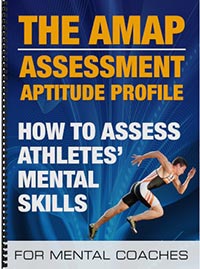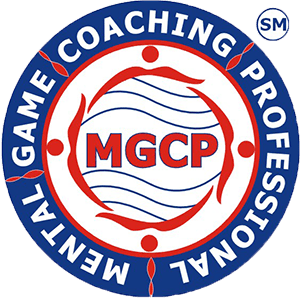
What To Do When Sports Parent Hurt Athletes’ Confidence
Sports parents can sometimes hurt an athlete’s confidence. I’m sure they don’t do it on purpose, but the net effect is lower confidence for some athletes.
Parents will try to motivate kids, but use a negative approach by punishing kids for poor play.
For example, Steve found himself working with critical sports parents of a young golfer he works with:
“What do you do to help a player’s confidence when, growing up, his Dad always criticized him and made him feel worse about playing poorly… making comments like, ‘Let’s just leave and go home’ after the first round of golf? His Dad is always very harsh, critical, and controlling of him. How do you handle a parent like this?”
As a mental coach, you have three options:
- Work with the athletes to improve confidence.
- Work with the Father in hopes of changing his approach.
- Work with both the athlete and the father.
First, you have to help the athlete understand where confidence comes from.
Should athletes’ confidence be based on others or what others say?
No, but often athletes do rely on other people for their confidence. And you see the problem with this approach in this case.
Your main objective is to talk about SELF confidence with your athlete—having confidence from within based on his skills, talents, strengths, and past success.
Most athletes would say they gain confidence from past success, practice and preparation, and knowing they have the physical talent. Shift the focus to these areas for your athletes.
Second, the harder part is working with the parent in this case because he’s the one who hired you most likely…
You never want to attack the parent for the unsupportive behavior.
However, you can talk about how your athlete reacts or feels to the parent’s behavior.
Many parents know they are part of the confidence problem; other parents are in denial. Hopefully the parent is willing to listen to you as the confidence expert.
You have to discuss how focusing on mistakes and being critical can hurt athletes’ confidence and how it hurts it.
You also want to give sports parents specific post-competition guidelines or a routine to follow. By instructing them on how you want them to behave during and after competition, you take a positive approach.
Fortunately, in my new program about working with sports parents, I provide a package of resources for parents that you can provide to them.
Some of these resources include pregame tips, post-game tips, and a test to measure how well they support their athletes’ mental game.
I send my resources too all parents I work with and then ask to discuss these in a meeting with them—outside of regular coaching.
As you might know, I’m launching a new program for mental coaches to help you work more effectively with parents and their young athletes…
If you have any questions about the best way to work with sports parents, like Steve’s, please contact us and let me know your challenges!
Related Mental Coaching Articles
- How Sports Parents Hurt Athletes’ Confidence
- Become a Mental Coach or Sports Psychologist
- Lessons from Bob Rotella in Sports Psychology
Mental Coach Assessment System

If you help athletes improve their mental game and want to be more effective with helping them build mental toughness, but don’t have a proven system for identifying and assessing your athletes’ mental game, I can help you…
I view this assessment as a way to “interview” athletes before they come in for coaching–and to improve organization and speed up the coaching process. Today, I call it the Athlete’s Mental Aptitude Profile or AMAP for short. Now you too can learn how to use the AMAP Assessment system with your athletes…
The AMAP System teaches you how to easily identify your athletes’ mental game challenges, what mental game issues to look for when reading the AMAP, and how to do a summary of the AMAP. In addition, you’ll also get follow up questions to ask and how learn about how to drill down on relevant topics.
